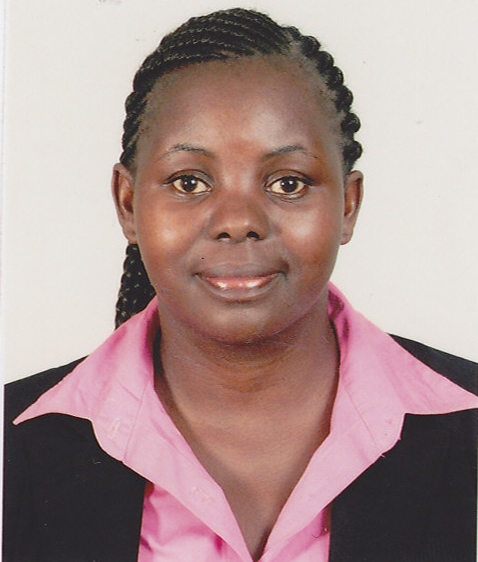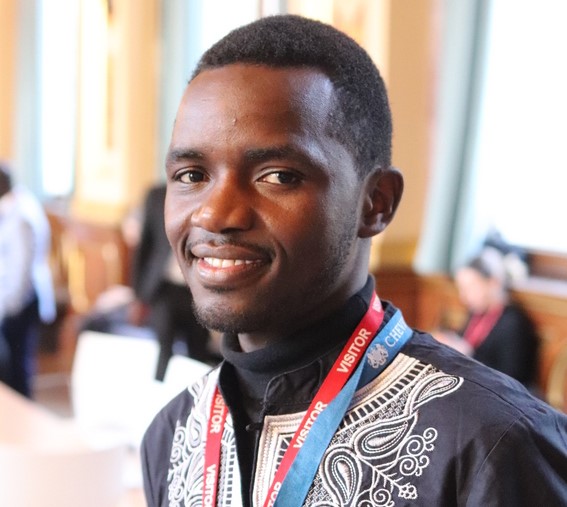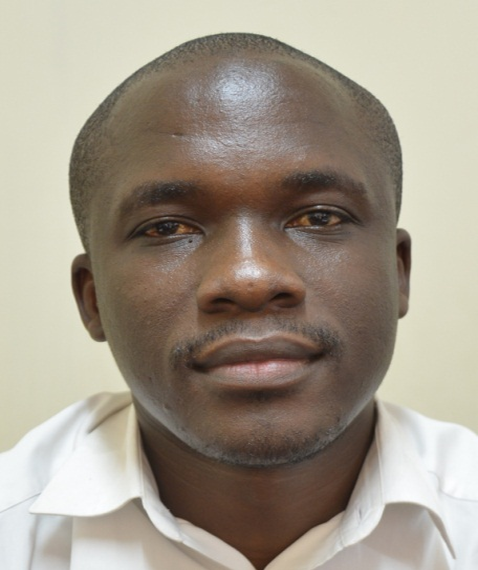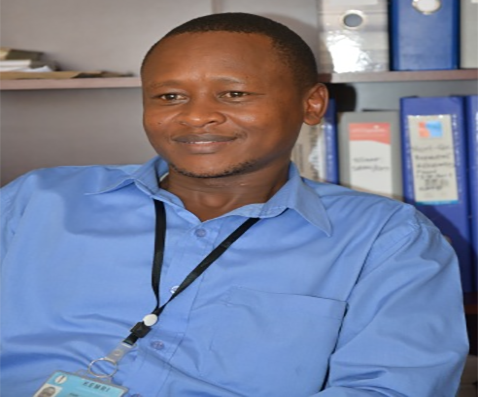The Scientific and Ethics Review Unit (SERU)
The Scientific and Ethics Review Unit (SERU) is central to research in KEMRI. The Unit’s purpose is to facilitate research with human participants and to protect their rights and welfare. It was inaugurated in April 2014 after the culmination of a restructuring journey that begun in 2010. SERU reviews research submissions from KEMRI and non -KEMRI researchers interested in conducting research in Kenya.
The Unit ensures that all proposals adhere to scientific and ethical principles that are fundamental to the conduct of research involving human participants. The SERU is composed of a secretariat and four review committees.
Each committee meets monthly to review and approve or disapprove proposals submitted.

Kebenei Enock Kipchirchir
Mr. Kebenei holds a BSC and MSc Degree in Health Information Management from Moi University and Kenyatta University respectively. He has trained in Bioethics, Biosafety, Clinical Trials Authorization, Research Integrity, Monitoring and Evaluation, Leadership & Management in Health. He is a member of Bioethics Society of Kenya (Member no. 00110).
He joined KEMRI in the year 2013. Currently, he works at the Scientific and Ethics Review Unit (SERU) as a Research Scientist (Research Regulations). Kebenei has served as the Head of SERU since June 2018. He coordinates and provides leadership in the functions of the accredited Scientific and Ethics Review Committees at KEMRI, monitoring and evaluation of projects for ethical compliance, and training of researchers on bioethics and scientific integrity. He has participated in the development of institutional guidelines, checklists, standard operating procedures, manuals, and policies in biological samples management, biological materials transfer, research regulation, institutional sports management, and records management. He has also participated in the resolution of cases of research misconduct at KEMRI. He has successfully implemented research projects as a Principal Investigator (PI) in research regulation and bioethics (locally and externally funded) and has published in these areas.
Mr. Kebenei’s research interests are Data Management, Bioethics, and Health Systems and Policy.

Caroline Kithinji
Caroline Kithinji is a Senior Research Officer at KEMRI SERU. Her duties include sourcing for funding for ERC initiatives to build capacity for the Ethics Review Committee and Secretariat; training research administrators, committee members, and clinical monitors in good clinical practice; and ethics review and ethics principles on an ongoing basis. She has also been the Lead Facilitator for regional seminars and teaching ethics at the KEMRI Graduate School.
Caroline has carried out research on informed consent and contributed two chapters to the Africa wide publication, “Research Ethics in Africa: A Resource for Research Ethics Committees.” Additionally, Caroline is a Certified IRB Professional and a member of the Programs Committee for the Maisha HIV and Aids Conference where she has provided technical support to the Kenya AIDS Strategic Framework 2014/2015 to 2018/2019.
Caroline holds a Master of Science in Medical Parasitology from London School of Hygiene and Tropical Medicine, as well as a Bachelor of Science from Nairobi University. In 2006 Caroline joined the Johns Hopkins School of Public Health under the Fogarty African Bioethics Training Program (FABTB) and received a certificate in ethics after completing a one year program

Gideon Cornel Msee
Msee, completed a PGD in Biomedical Ethics and is currently completing a Masters in Biomedical and Healthcare Ethics (MBHE), and a Masters in Medical Biochemistry. He was the coordinator of the Ethics Review Committee (ERC) at SERU and continues to support SERU in various capacities including review of proposals and research regulation duties.
Msee is keen to learn, lead, and influence key decisions that can improve human health and health policy through research, advocacy, capacity building, and championing for ethical healthcare delivery and human health research. His interest is in Bioethics (Research Ethics/Regulation, Healthcare Ethics, and Public Health Ethics), and biomedical sciences of infectious diseases and cancer.
He is keen to network and collaborate with educators and researchers in bioethics and biomedical science of infectious diseases and cancer.

Kisienya Odhiambo Cyprian
Kisienya is a Research Scientist based at KEMRI Scientific and Ethics Review Unit (SERU). His career interests are in the areas of Microbial Genomics, Research Regulation and Administration and Research/Bio- Ethics. Kisienya has formal training in BSc. Biotechnology (Guru Nanak Dev University-Amritsar, India) and MSc. Bioinformatics and Molecular Biology (Jomo Kenyatta University of Agriculture and Technology-Juja, Kenya). Additionally, he has undertaken various certificate level training courses namely; Ethical Decision Making (University of Surrey), Foundations of Bioethics (CBEC-KEMRI), Research and Public Health Ethics (CBEC-KEMRI), Research Methodology (CBEC-KEMRI), Foundations of Implementation Science (University of Washington), Laboratory Safety (DEID USAMRUD-K), MRSA and Bioinformatics (University of Cambridge/KEMRI/Welcome Trust Sanger Institute), Data Quality and Data Use for Program Managers (Global eLearning Program) and Proposal Development (University of Washington- KEMRI).
Kisienya’s current research work is in the area of microbial genomics especially seeking to understand the pathogenesis and virulence characteristics of enteric pathogens using bioinformatics applications.
Kisienya’s role at the KEMRI SERU involves review of scientific research proposals, provision of technical advice to researchers, Monitoring and Evaluation of approved research activities and offering training in research administration and research/bioethics; a role he has actively undertaken since 2014.Kisienya has participated in the development and continuous review of the Standard Operating Procedures for KEMRI SERU, development of a Document Management System, Development of Research Guidelines for Conduct of Research during pandemics and also contributed in the development
of the institutional Materials Transfer Agreement (as a KEMRI SERU representative in collaboration with NACOSTI). Additionally, he is involved in the teaching of various courses in Research Ethics, Bio-Ethics, Public Health Ethics and Research Administration.
Kisienya is an active member of the Bioethics Society of Kenya (BSK) (member number BSK-MC-19-145).
Out of work related matters, he is an active member of the KEMRI Frisbee Club and he represents KEMRI in local, regional and International tournaments.

Geoffrey K. Ngasura
Mr. Ngasura joined KEMRI Scientific and Ethics Review Unit (SERU) on 24th November 2014 as a data entry clerk at the Unit’s registry. He was then taken in as an assistant research officer in the secretariat to support the review committees.
His main tasks in the unit currently is; compliance officer in charge of Shipment, ISO representative, performing monitoring and evaluation of research studies and assists in administrative issues. He is also member of one of the unit’s Review boards committee. He is a member of Bioethics Society of Kenya
Mr. Ngasura holds Bachelors degree in Business Information Technology from Mt. Kenya University. He also has a certificate in International Research and Ethics from Moi-Indiana University. Additionally, he has undertaken several other certificate level training courses including Clinical Research Ethics (CBEC-KEMRI), International Leadership and Management in Health (University of Washington-KEMRI), Geographic Information Systems (UoW)
Mr. Ngasura has passion in Bioethics he is currently pursuing his Post Graduate Diploma at the Centre for Biomedical Ethics and Culture, SIUT, Karachi, Pakistan
Mr. Ngasura’s hobbies are; Playing Frisbee (he is currently captain of the KEMRI Frisbee Ultimate Club), Traveling, Nature walking, and Hiking. He is also a volunteer with Presidents Award Kenya as an assessor.

James Nguya Wanja
James Nguya Wanja is a SERU Compliance Officer (Research Scientist, Research Regulation) at the SERU Secretariat. He joined KEMRI in October 2011 as an Assistant Research Officer (Research Ethics) at Scientific Steering Committee (SSC) and Ethics Research Committee (ERC) Secretariats before restructuring of the scientific and ethics review processes was done by KEMRI.
James was one of the research officers who carried the data collection that culminated with the restructuring of the review system to make a one stop shop Scientific and Ethics Review Unit (SERU) which carries out the functions that both SSC and ERC on research regulation (Scientific and Ethics approvals).
James is a Bachelor of Arts (Social Work) graduate from the University of Nairobi class of 2011. He also has a Post Graduate Diploma in Biomedical Ethics obtained at the Centre for Biomedical Ethics and Culture, SIUT, Karachi, Pakistan in 2019 as well as Research Ethics and Public Health Certificate from the same Institute in 2014. He has also done Centre for Collaborative Initiative (CITI) research ethics training. He is a Masters graduate in Project Planning and Management from the University of Nairobi in 2019.
He has a passion in the field of Bioethics. His interests include community work, good governance in public office, travelling and photography.

Ms. Lilian Achacha
Lilian Achacha is an Assistant Research Officer at the Scientific and Ethics Unit as a Compliance Officer in charge of Centre for Microbiology Research (CMR). She is well vast in the areas of Research regulation and administration as well as Scientific research.
She holds a Bachelor of Science in Microbiology and Biotechnology from the University of Nairobi
Daisy Chebet Cheruiyot
Ms. Cheruiyot holds a Bachelor of Science in Nursing from University of San Carlos-Philippines and is currently pursing Masters in International Health Research Ethics at Moi University.She is an assistant research officer at the Kenya medical research Institute since 2013.Registered by the Nursing Council of Kenya and a member of Bioethics Society of Kenya.
She has undergone training in; Research and Scientific Writing skill,Research Misconduct, Geographic Information Systems, Health ethics, Research Ethics in Genomics and Biobanking. Her interest is in research regulation and qualitative research.

Ms. Maryanne Metto
Miss Metto Works at the SERU as a compliance officer for CVR, CRDR and CPHR. She has worked at the Unit since 2013, she has a vast experience in review of resubmitted protocols, request for shipments and annual renewal protocols.
She holds a degree in Business information technology and Has a passion in systems and data security.

Timothy Kipkosgei
Timothy Kipkosgei is Research Scientist at the Kenya Medical Research Institute (KEMRI). He is currently the SERU Compliance officer and an IRB coordinator at SERU. Timothy obtained his Master of Science degree in International Health from JKUAT and a Bachelor of Science degree in Biochemistry from Egerton University.
Timothy’s research interest focus on Bioethics, Public Health and Health Systems research. He has served as the production editor for the quarterly KEMRI Bioethics newsletter from 2012 to 2017.
Timothy is also a member of Bioethics Society of Kenya and is currently pursuing a Post Graduate Diploma in Bioethics at the Centre of Biomedical Ethics and Culture (CBEC), SIUT, Pakistan

Victoria Chepkorir Soi
Victoria is an Assistant Research Officer at Scientific and Ethics Review Unit (SERU) and she is the Compliance Officer for Centre of Clinical Research (CCR). She joined Kenya Medical Research Institute in 2013. She holds a Bachelor’s degree in Information Technology from Jomo Kenyatta University of Agriculture and Technology and is currently pursuing a Master’s degree in Computer Systems at Jomo Kenyatta University of Agriculture and Technology.
She also holds a Certificate in Clinical Ethics from the Centre of Biomedical Ethics and Culture (CBEC), Karachi, Pakistan. Victoria’s passion is on research regulations and technology in the healthcare research sector. Her hobbies include hiking, travelling and music.
KEMRI has grown to become one of the leading health research institutes in Africa with demonstrated success in conducting collaborative biomedical research and producing exceptional scientists.
To accomplish this, an effective scientific and ethics review mechanism is necessary to support the diverse range of health research conducted at the Institute. KEMRI has a 2-tier research review system which entails initial scientific peer review by the Centre Scientific Committees (for KEMRI protocols) or scientific review by the host institution (for Non-KEMRI protocols) followed by a simultaneous scientific and ethics review by one of the four committees at the Scientific and Ethics Review Unit
Through SERU, KEMRI is well-placed to provide a robust research review mechanism responsive to the changing and expanding public health landscape in the region. View Our Review Process
Initial Proposal
This is a new proposal that is going through the first review at the KEMRI/SERU.
Amendment
An amendment is shall be defined as any change to a SERU approved research project, such as:
Recruitment and data collection Procedures, Research Personnel, sponsor or funding agency, project study site, study design and or any change on the informed consent.
NB/= Investigators should consult the SERU office for more information on the amendment criteria.
Annual Renewal
This is an annual report provided detailing activities carried out within that specified reporting period. All active or open studies must be renewed including:
- A study that is closed to accrual of research participants but is in the follow-up phase.
- A study in which direct contact with study participants is complete but data analysis, report writing or manuscript preparation are the only ongoing activities.
Failure to submit an annual renewal on time requires the Principal Investigator to pause the study and file a protocol deviation.
Notification
This is a report submitted when the change to a protocol is necessary to eliminate apparent immediate danger/risk to the research participants.
Deviation
It’s defined as any failure to adhere to the defined procedures or treatment plans outlined in the protocol version previously approved by the SERU. The P.I should report deviations within 7 working days after being notified of its occurrence.
Violation
Any planned or inadvertent changes that may or may not impact safety of study participants, affect the integrity of study data, and/or affect study participants’ willingness to participate in the study previously approved by the SERU
Serious Adverse Events
It’s an occurrence that leads to the following: hospitalization, death, permanent disability or life threatening. It should be reported to SERU via email within 24 hours after the P.I learns of its occurrence and hard copies forwarded to SERU within three working days.
Study Closeout
This is a final report on a study that has completed all study activities and published and the study now needs to close.
It’s also submitted when a study didn’t kick off and the P.I. doesn’t see any need to keep it open due to various justifiable reasons.
Shipping
KEMRI Scientific and Ethics Review Unit (SERU) is the Unit mandated by KEMRI to process and approve applications for shipment of Biological samples or specimens. Shipment of samples is limited to analyses that cannot be carried out in KEMRI and other institutions in Kenya. Samples and specimens that are commonly shipped include but not limited to; blood samples, saliva, breast milk samples, mosquito parts samples, biological cultures, tissue and tissue samples, hair samples, human stool, environmental samples used in human health research; among other samples.SERU also provides advisory on importation of samples for research purposes in SERU approved protocols.SERU handles only shipment applications for KEMRI-based studies. The authority to ship biological samples or specimens from non-KEMRI affiliated studies (NON-SSC/NON-SERU category) should be obtained from the Head of the Department of Standards and Regulatory Services (DSRS), Ministry of Health, Afya House, Cathedral Road.Investigators who intend to ship samples should ensure that their studies are approved by SERU and there is a provision of shipment of samples in the approved protocol. For samples from humans, the study participants must have consented to the shipment of their samples to overseas institutions for analysis.Additionally the application should be accompanied by cover letter detailing the request , SERU Form for exportation of samples, Consent Documents, current SERU initial of continuing approval letter and a part of the protocol that indicates the need for shipment of samples (unless requested for a whole protocol).
Electronic Submission
All applications/requests EXCEPT New applications and Request for shipment/transfer of biological materials must be sent through the following e-mail addresses: ek.og.irmek@ures AND moc.liamg@81uresirmek
The e-mail subject line for all protocols should begin with the nature of the application followed by the Unique Number E.g. Safety Report SERU No. 0001 to ease tracking.
The KEMRI affiliated protocols need to be forwarded through the Center Deputy Director where the study is domiciled
As of first April 2021, all New proposals will be submitted via the RHInnO ethics platform. Follow this link to create a new account before submitting the application
Training
The Scientific and Ethics Review Unit ensures that all research proposals involving human subjects meet acceptable standards of scientific rigor, are feasible for implementation and protect research participants.
Hence, SERU requires all study investigators/researchers to adhere to guidelines that will enable protection of research participants when conducting research.
Basic Training
Capacity Building
The SERU offers training for: researchers, Research centres/ institutions and other scientific and ethics committees. The Unit conducts, promotes and facilitates training in research ethics and research methodology.
The level of language and syntax used should be appropriate to the age, comprehension and reading level of the study population. The use of legalistic phrases, scientific and medical terminologies should be avoided. Volumes, weights as well as scientific measurements should be expressed in meaningful scales (e.g. blood draws in numbers of teaspoonfuls, tablespoonfuls or proportion of a National Blood Services donation). All consent documents must have a version number, date and be signed and stamped by the SERU Committee Chairperson or SERU IRB coordinator.
Title of the Research Study:
Investigator(s) – Local and International Collaborators: Provide the name and institutional affiliation of all investigators on the study. List PI first followed by co-investigators.
Study location: Indicate where the study will be conducted.
KEMRI - SERU COVID-19 Guidelines
Flow Charts
SERU Committee Schedule
SERU Applicant SOP's
| SOP NO. | DESCRIPTION | DOCUMENT |
|---|---|---|
| PI_SOP 1 | Submission for Initial Review of a proposal | Download |
| PI_SOP 2 | Amendments to Research Studies | Download |
| PI_SOP 3 | Continuing Review | Download |
| PI_SOP 4 | Study Closure Reports | Download |
| PI_SOP 5 | Notifications | Download |
| PI_SOP 6 | General Requirements of Informed Consent and Documentation | Download |
| PI_SOP 7 | Community Engagement Recruitment Advertising | Download |
| PI_SOP 8 | Vulnerable Populations in Research | Download |
| PI_SOP 9 | Clinical Research Involving Investigational Drugs and Devices | Download |
| PI_SOP 10 | Unanticipated Problems | Download |
| PI_SOP 11 | Research Related Injury | Download |
| PI_SOP 12 | Expedited Review | Download |
| PI_SOP 13 | Request for Review of Applications in Emergency Outbreak Settings | Download |
| PI_SOP 14 | Secondary use of Participant Data Medical Records | Download |
| PI_SOP 15 | Secondary use of Biological Samples | Download |
| PI_SOP 16 | Genetic Research | Download |
| PI_SOP 17 | Research on Animals | Download |
| PI_SOP 18 | Actions to Approve or Disapprove Research | Download |
| PI_SOP 19 | Appeal of SERU Decisions | Download |
| PI_SOP 20 | Alternative Review Arrangements and Agreements | Download |
| PI_SOP 21 | Protocol Deviations, Violations and Non-Compliance | Download |
| PI_SOP 22 | Research Complaints and Concerns | Download |
| PI_SOP 23 | Administrative Hold, Suspension and Termination of Approved Research | Download |
| PI_SOP 24 | Payment for Participation in Research Studies | Download |
| PI_SOP 25 | Routine and for Cause Audits | Download |
| PI_SOP 26 | Applications for Import and Export of Biological Samples | Download |
| PI_SOP 27 | Conflict of Interest | Download |
Newsletter
The KEMRI bioethics review is a quarterly electronic Newsletter started by the 2011. The newsletter aims to inform, educate and entertain its readers.
The newsletter also aims to stimulate discussion on prevailing issues related to research ethics and laws. KEMRI Bioethics Review provides information and updates on Ethical issues in research involving human subjects by focusing on specific themes for each quarter. Since inception in 2011, 18 issues have produced and published.
Articles published are contributed by KEMRI affiliated authors and from other contributors from all over institutions within and outside Kenya. The scope of articles ranges from ethical issues in biomedical science, healthcare, technology, law, religion and policy.
The chief editor encourages submission of articles as a way of creating awareness and discussions on bioethics. Please get in touch by writing to gro.irmek@ures.
KEMRI Bioethics Review Newsletters Year Download
KEMRI Bioethics Review Volume 1 2011 Download
KEMRI Bioethics Review Volume 2 Issue 1 2012 Download
KEMRI Bioethics Review Volume 2 Issue 2 2012 Download
KEMRI Bioethics Review Volume 2 Issue 3 2012 Download
KEMRI Bioethics Review Volume 3 Issue 1 2013 Download
KEMRI Bioethics Review Volume 3 Issue 2 2013 Download
KEMRI Bioethics Review Volume 3 Issue 3 2013 Download
KEMRI Bioethics Review Volume 3 Issue 4 2013 Download
KEMRI Bioethics Review Volume 4 Issue 1 2014 Download
KEMRI Bioethics Review Volume 4 Issue 2 2014 Download
KEMRI Bioethics Review Volume 4 Issue 3 2014 Download
KEMRI Bioethics Review Volume 5 Issue 2 2015 Download
KEMRI Bioethics Review Volume 5 Issue 3 2015 Download
KEMRI Bioethics Review Volume 5 Issue 4 2015 Download
KEMRI Bioethics Review Volume 6 Issue 1 2016 Download
KEMRI Bioethics Review Volume 6 Issue 2 2016 Download
KEMRI Bioethics Review Volume 6 Issue 3 2016 Download
KEMRI Bioethics Review Volume 6 Issue 4 2016 Download
KEMRI Bioethics Review Volume 7 Issue 1 2017 Download
KEMRI Bioethics Review Volume 8 Issue 1 2018 Download
FAQs
- What is the KEMRI format for writing a proposal?
Answer: Please click on the following link SERU Guidelines for Writing Project Proposals - How long does it take to review and approve a proposal at KEMRI SERU?
Answer: It takes approximately six weeks to get the first response which can either be an approval or a request to the study investigators to make further revisions. - What is a minimal risk study?
Answer: A minimal risk study is a study in which the likelihood of harm posed to the research participants in a study is no more than they would encounter in their daily lives or during routine medical or psychological care/examination. - What is the difference between quick turnaround and expedited review?
Answer: A proposal qualifies for a Quick Turn Around review if it requires a faster than usual review due to a major public health concern e.g. an epidemic. A proposal qualifies for expedited review if it is not more than minimal risk and involves only procedures listed in one or more of the set-out categories.
NB- Expedited review does not mean quick review of the proposal. It means the application will not be reviewed by a full committee because it involves minimal risk on the participants. - What is the average turnaround time for an expedited review?
Answer: The expedited review process and quick turnaround shall take no longer than (10) working days. - What are the review charges/fees at SERU?
Answer: NON-KEMRI investigators are required to pay KSH 100,000/= for an initial protocol review. However, expedited review requests attract a fee of KSH 200, 000. Please note that this is a one-off fee for each study. - When do we need to close out a study?
Answer: The PI should submit the request for study closure when there is no more contact with the participant, data set has been closed and the main findings of the study have been published.
NB- Investigators conducting multi-site studies reviewed by multiple IRBs should comply with all IRBs providing oversight.
KENYA MEDICAL RESEARCH INSTITUTE
SCIENTIFIC AND ETHICS REVIEW UNIT
P.O. BOX 54840 00200 OFF MBAGATHI ROAD,
NAIROBI, KENYA
HOUSE NUMBER 8, KEMRI HEADQUARTERS.
